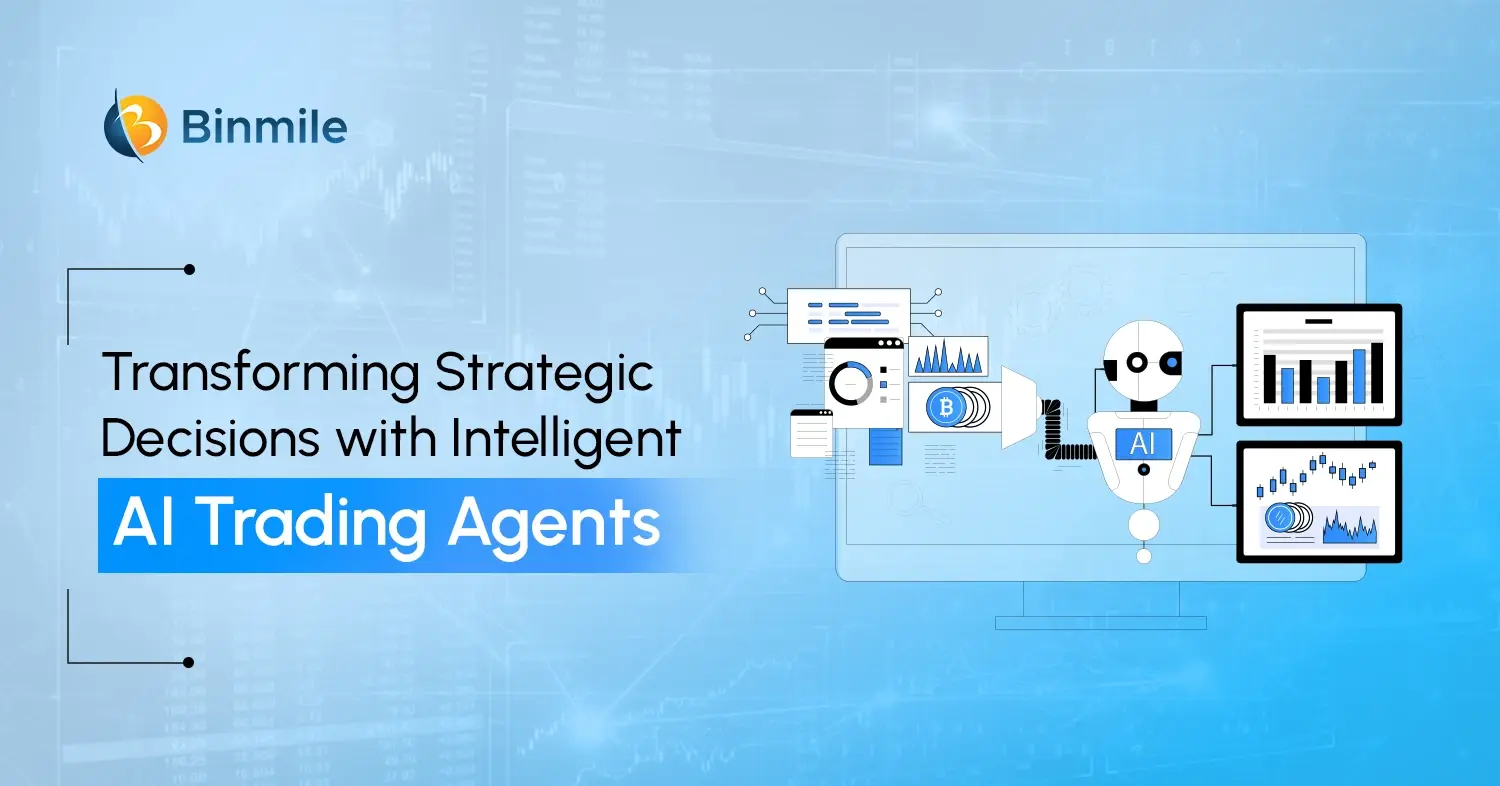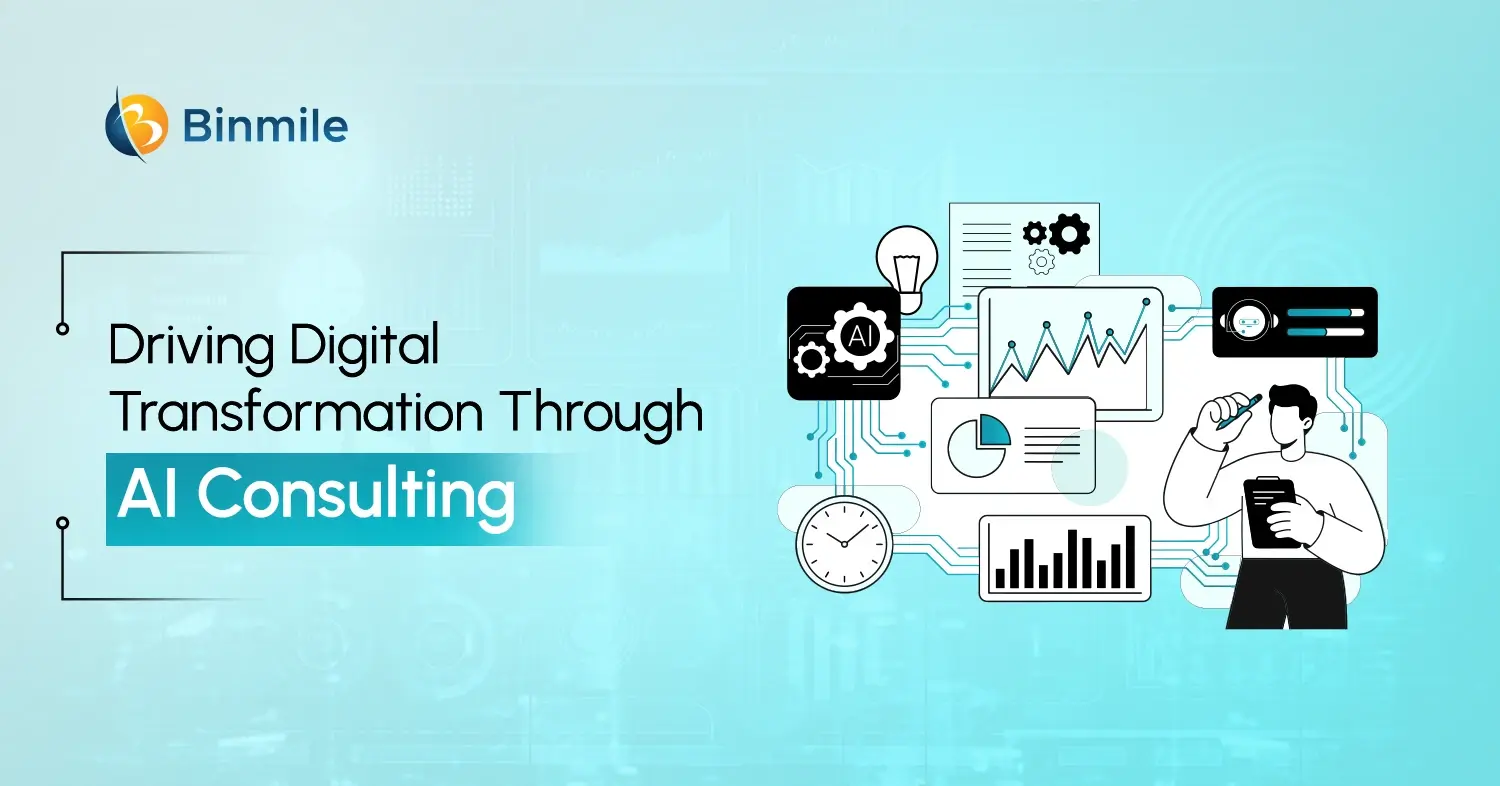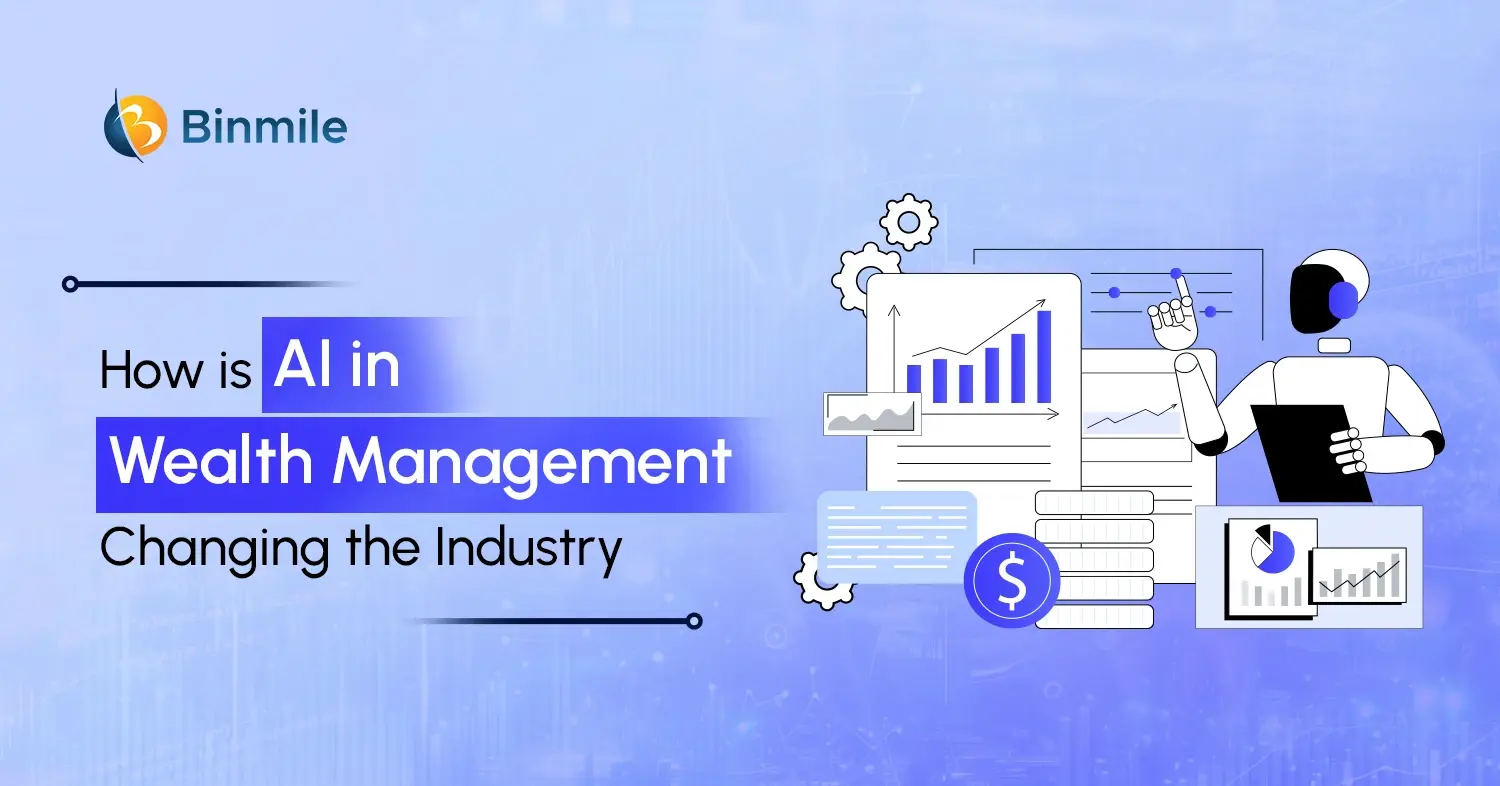The automotive industry is undergoing a transformative shift with the advent of advanced technologies such as artificial intelligence, ML, and IoT, among others. Moreover, today’s tech-savvy consumers expect their vehicles to become as smart and personalized as their mobile devices and personal voice assistants. Therefore, automotive business owners are leveraging these advanced technologies and redefining how we perceive and interact with vehicles. At the forefront of this revolution is AI in automotive industry. From autonomous driving to enhanced safety features, AI applications in automotive industry are playing a pivotal role in transforming the industry, making it more efficient, sustainable, and customer-centric.
However, the role of AI in car industry goes beyond manufacturing, revolutionizing automotive retail as well. Therefore, businesses in automotive that want to utilize the technology and its subset to get a competitive advantage and give customers a more enhanced and personalized experience must understand the potential impact on the future of mobility. In this blog, we dive deep into the intricate relationship between AI and the automotive sector. We’ll also understand AI applications, their challenges, and the benefits of AI in automotive industry.
AI in Automotive Industry: Impact, Benefits & Use Cases 2024

Artificial intelligence as a technology has been bringing changes to many areas in the automotive sector. From advanced driver assistance systems that detect and respond to potential hazards on the road to voice recognition technology that allows drivers to stay connected while keeping their hands on the wheel, it’s transforming the way customers experience mobility.
Exciting aspects of artificial intelligence services in the automotive sector include Generative AI. Generative AI is reshaping the automotive landscape, infusing vehicles with intelligence and creating personalized driving experiences that adapt to individual preferences and needs. GenAI use cases in automotive industry let customers adjust their aesthetics, displays, and controls, offering a fully customizable driving experience that seamlessly aligns with their preferences.
Top AI Applications in Automotive Industry: Improving Safety, Efficiency, and Beyond
The automotive industry has been rapidly adopting AI to enhance safety, efficiency, and overall driving experience. Let’s discuss 7 proven AI applications in automotive industry to highlight how AI is creating value for advanced industrial companies.

1. Self-Driving Revolution
Input from different sensors, cameras, or radars is analyzed by machine learning algorithms to determine road lanes and spaces, obstacles, and make decisions of choosing the right path in microseconds. In the future, when AI continues to develop, we are gradually expecting cars that can navigate roads without human intervention and with minimal risks.
2. Proactive Vehicle Care
AI-powered systems can monitor data entry devices within a car and make a prognosis of the time when a car needs to be maintained. This approach is thus effective in anticipating vehicle breakdowns and minimizing downtimes as well as in increasing the life expectancy of vehicles. Manufacturers and fleet operators can schedule their maintenance schedules more efficiently and avoid wasting resources, time, and energy.
3. Smarter Safety Features
AI enhances ADAS features like lane departure warnings, adaptive cruise control, and automatic emergency braking. These systems can predict potential failures and identify risk factors that may lead to accidents, long before they become imminent threats. This predictive capability marks a significant shift from reactive to proactive measures in ensuring road safety. It also further utilizes ML to improve the vehicles’ performance over time by adapting to the driving conditions, style, and users’ choices to provide safe as well as comfortable rides.
4. Personalized Comfort & Convenience
Artificial intelligence is making vehicles smarter and more specific to a user’s preference. For instance, natural language processing-based voice assistants can manage several car features, provide real-time information, and gain knowledge about the driver’s preferences. Some minor but more tailored experiences to the driver by changing the settings of the car such as adjusting seat positions, temperature settings, and entertainment options based on individual user profiles and preferences.
5. Streamlined Supply Chain Optimization
Within this process, AI can be leveraged in numerous areas, from assisting with vehicle assembly to the handling and automation of repetitive tasks during production and post-production. AI algorithms also optimize SCM to forecast demand and look for disruptions, as well as streamline logistics. Additonally, AI in inventory management plays a crucial role in detecting defects or potential issues, thus resulting in better production cycles, less expenses, and better-improved inventory management.
6. Enhanced Quality Control
AI-enabled computer vision systems can be used to inspect cars during the manufacturing process with a lot of precision and efficiency when compared to the use of human inspectors. Such systems can pick such flaws even to the extent of a pinhole, and also reduce the time spent on quality control and defect analysis, yielding not only significant time, and cost savings but also improving quality standards and avoiding recalls.
7. Efficient Design & Development
AI-powered automotive software development services are bringing a massive transformation to the design of automobiles. Foundational models — like ChatGPT for text generation and Stable Diffusion for image generation — can support AI systems capable of multiple tasks. This unlocks many possibilities. On one hand, generative AI algorithms can create optimized components that are lighter, stronger, and more efficient than traditional designs. AI development services can automate repetitive and mundane tasks like code generation, debugging, and testing, which traditionally consume a substantial amount of time. Moreover, AI models can simulate and test designs virtually, reducing the need for physical prototypes.
Partner with us to drive the future of mobility and deliver AI-powered solutions for a smarter, safer future.

Transformative Potential of AI in Automotive Industry: 5 Key Benefits
- Enhanced Safety: From collision avoidance to fatigue detection, AI technologies are making roads safer for everyone. It can improve vehicle safety by reducing human error, which is a leading cause of accidents.
- Increased Efficiency: It optimizes various aspects of automotive operations, from manufacturing to vehicle performance. This leads to reduced fuel consumption, lower emissions, and more streamlined production processes, ultimately benefiting both consumers and the environment.
- Improved User Experience: AI personalizes the driving experience, making vehicles more intuitive and enjoyable to use. For instance, voice-controlled features, adaptive infotainment systems, and adjusting seats, thus enhancing the driver’s experience.
- Cost Reduction: While initial investments in AI technology can be significant, the long-term benefits include reduced operational costs, fewer recalls, and more efficient resource utilization. These savings can be then utilized for consumers or reinvested in further innovation.
- Innovation & Competitiveness: AI is driving rapid innovation in the automotive sector. Companies that effectively leverage AI gain a competitive edge, attracting tech-savvy consumers and positioning themselves as industry leaders in the era of smart mobility.
Development Guide: How to Build an App Like an Uber
AI in the Automotive Industry: Key Use Cases

The Future of AI in the Automotive Industry: What Comes Next?
When we discuss the future of AI in the automotive industry, it seems positive and full of potential for both the vehicle manufacturers and the riders. According to Forbes, the global autonomous car market will grow from $5.6 billion in 2018 to $60 billion by 2030, making it clear that self-driving cars will gain significant ground. Therefore, it’s evident that digital modernization driven by AI will have a profound imprint on the automotive industry. In that scenario, AI in automotive industry will see connected and autonomous vehicles gaining popularity, remote repair and analytics being embraced, and OEMs collaborating with technology companies to build innovations.
However, finding their footing in the future of mobility will also require companies to maintain a careful balance between governance and modernization. While rapid changes flood the automotive industry, auto manufacturers are also tasked with striking compatibility between oversight that protects consumer safety and privacy with agile working methods that bring innovation and iteration at the speed of business.
Also Read : Future of work in the Automotive Industry
Ready to harness the full potential of AI & revolutionize your automotive business? Let's build the future of mobility together.

Closing Statement
So far, we understood how the automotive industry is undergoing a paradigm shift, driven by technological advancements. AI in automotive industry is undeniably the driving force behind this transformation. Its applications span across various domains, from autonomous vehicles and advanced driver assistance systems to predictive maintenance and personalized user experiences. As AI applications in automotive industry continue to evolve, we can expect even more groundbreaking innovations that will redefine the way we interact with vehicles and reshape the mobility landscape.
Manufacturers and fleet owners must understand what the sources of value in the AI really are and then start developing the necessary analytical capabilities and establishing an AI-ready culture in their respective automotive operations. While challenges such as data privacy, cybersecurity, and ethical considerations need to be addressed, the potential benefits of AI in the automotive industry are immense. A key benefit of AI in transportation is the enhancement of safety, efficiency, and sustainability within mobility ecosystems.If you’re looking forward to shaping the future of mobility and create a more advanced AI-powered transportation system, partner with our custom software development services for the automotive industry and ignite your automotive potential with our cutting-edge AI solutions.









